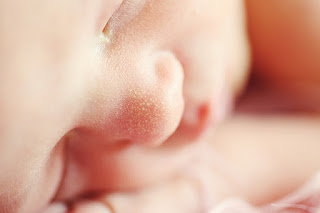The National Survey on Drug Use and Health reveals that 11.4 million people misused opioids in 2017. The number of people is likely significantly higher due to underreporting. Still, over ten million Americans abusing this addictive and deadly family of drugs is startling to consider.
At Hope By The Sea, we frequently cover the topic of opioid use disorder. There are so many angles to consider regarding the scourge of prescription opioid and heroin use in America.
The disease and all the damage addiction causes can be likened to bombs going off in communities around the country. Each day, more than 100 Americans die of an overdose. Families are torn apart, and loved ones are left with a sense of helplessness. Of the many who survive thanks to the drug naloxone, their risk of experiencing another overdose is high if they do not seek treatment immediately.
Americans in both rural and urban communities have seen the damage opioids can do first hand. Local hospitals are overburdened and overextended by having to divert resources toward addressing the public health crisis. First-responders, doctors, and addiction treatment professionals are working tirelessly to provide addicted men and women support.
Data indicates that overdose death rates have leveled off some, but the damage left in the wake of rampant overprescribing and abuse is astonishing. Sadly, it’s not just the addicts whose lives are changed by drug use. In the last two decades, thousands of babies were born with a condition called neonatal abstinence syndrome or NAS. The disorder arises when an expectant mother uses opioids throughout pregnancy.
Growing Up With NAS
In 2014, 32,000 babies were born with NAS in the U.S., according to the National Institute on Drug Abuse (NIDA). When fetuses are exposed to drugs in the womb, they can face severe health problems at the time of birth and beyond. Such babies are subject to acute withdrawal symptoms once detached from the umbilicus, with some symptoms lasting for four to six months.
NIDA reports that every 15 minutes, one baby is born suffering from opioid withdrawal. NAS cases require close monitoring in the hospital for weeks post-birth. During that time, they may experience seizures, tremors, fever, and dehydration. The list goes on, but each case is different, and doctors are still trying to figure out the long-term effects of the condition.
The problems do not cease once discharged from the hospital, as many parents and grandparents are figuring out. Childcare centers are finding it too challenging to meet the needs of those with NAS. As a result, babies and toddlers are being kicked out of daycares across the country, CNN reports. The alarming trend has led to the creation of a center just for NAS cases.
Huntington, West Virginia, is a city that has been devastated by the epidemic. One out of five babies is born to a mother who used opioids while pregnant at Cabell Huntington Hospital, the city’s largest hospital. The demand for childcare centers that can meet the unique needs of NAS children is high.
Perhaps the first of its kind in the country, one daycare in Huntington serves only babies and toddlers with NAS, according to the article. When it opened in June, hospital employees visited the center to provide helpful tips to the staff. They shared that NAS babies need to avoid bright lights and colors on the walls. The same is true for overstimulation from loud singing or toys. Exposure to such things can send a child into an inconsolable frenzy.
“These children just have different needs than other children,” said Suzi Brodof, executive director of the center.
Employees at the center hope to prepare the children for life down the road. Researchers at Vanderbilt University Medical Center found that NAS babies are more likely to struggle with motor and cognitive impairments and ADHD as they age. The researchers state that:
“The damage of prenatal opiate exposure is debilitating and long lasting.”
Southern California Opioid Use Disorder Treatment
Please reach out to Hope By The Sea if you are struggling with opioid addiction that involves heroin or prescription painkillers. We can help you safely detox and set you on a path toward lasting recovery. We rely on evidence-based therapies to bring about long-term progress.


